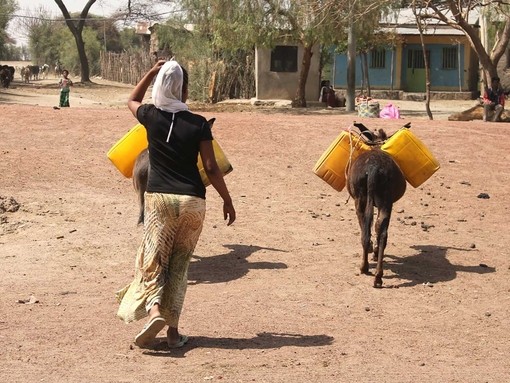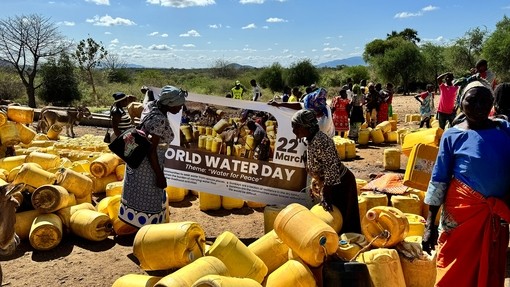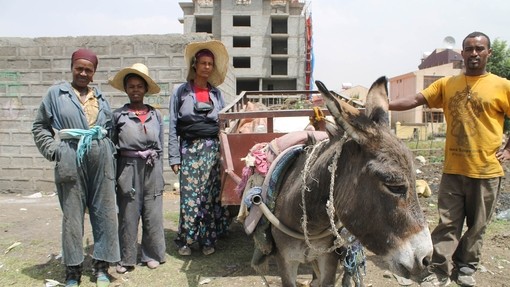
World Water Day 2021
This year’s World Water Day reflects on the value water brings to communities worldwide. Water means different things to different people. In rural Ethiopia, water helps to sustain livestock and enable families to eat, drink and wash.
Ethiopia has approximately 8.8 million donkeys, the largest population in Africa. These donkeys are often visible in the rural areas as they carry vital clean water supplies over long distances to provide vital sustenance for livestock and family life.
Ethiopia has a common saying” A farmer or woman without a donkey becomes the donkey.” Having access to donkeys frees women and children up to live a less marginalised, more productive role in society.
Up to 200 million hours per day are spent collecting clean water around the world. The simple act of a donkey carrying water greatly reduces the time required to access it and eases the physical demands of collection.
Less visible is the contribution donkeys make to the development and support of people’s livelihoods in semi-urban and urban environments. In these areas, they also provide transport, food security and income generation, free up women for work, and enable their children to go to school.
Access to clean water and sanitation is one of the United Nation’s Sustainable Development Goals (SDGs), along with alleviating global poverty, hunger, illiteracy and disease.
Your support makes stories like this possible
Share this page
Tags
- News








